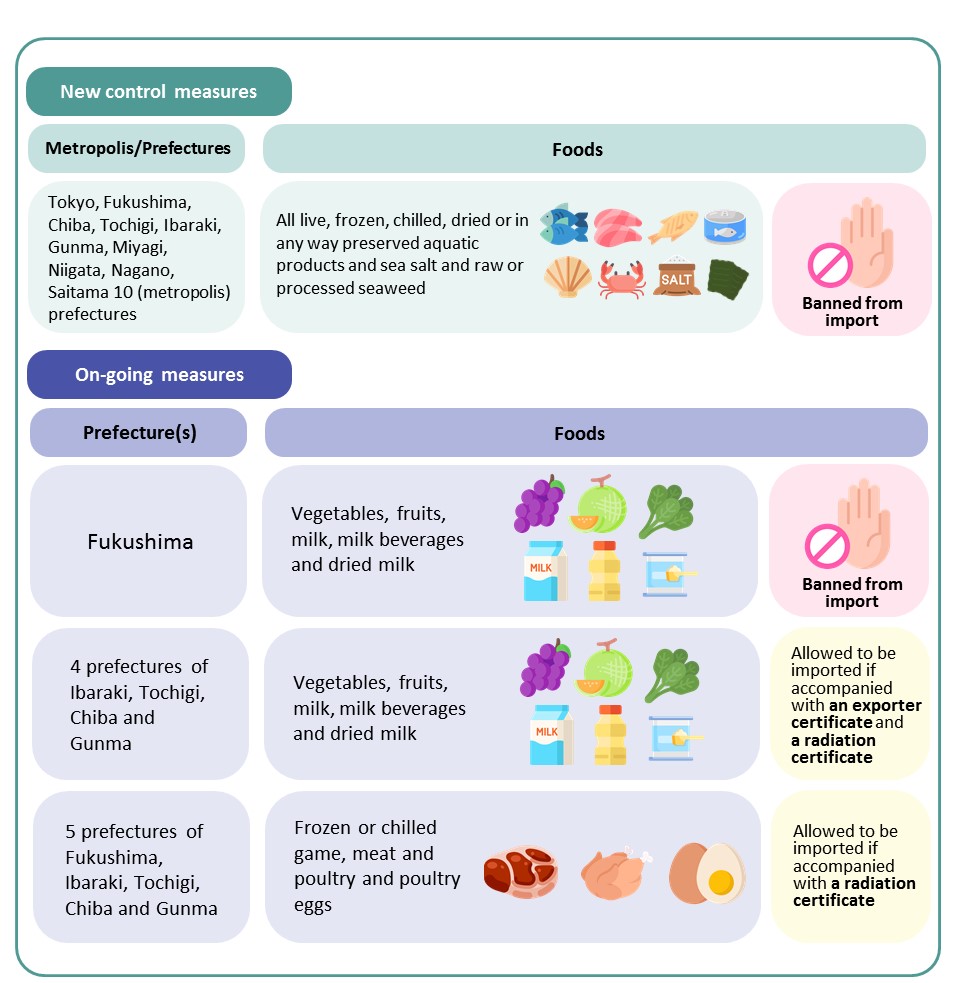The Centre for Food Safety (CFS) announced that, in response to the Japanese government's discharge of the nuclear-contaminated water from the Fukushima nuclear power plant into the ocean, the import of aquatic products harvested, manufactured, processed or packaged in 10 metropolis/prefectures including Tokyo, Fukushima, Chiba, Tochigi, Ibaraki, Gunma, Miyagi, Niigata, Nagano, and Saitama has been banned to ensure food safety and protect public health.
According to the relevant the Food Safety Order (the Order), aquatic products originating in the above metropolis/prefectures, including all live, frozen, chilled, dried or otherwise preserved aquatic products, sea salt, and unprocessed or processed seaweed are prohibited from being imported and supplied in Hong Kong. In addition, all aquatic products imported from Japan must undergo a radiation level test, and only after verifying that the relevant products do not exceed the radiation level can they be supplied to the market.

In parallel, Hong Kong will maintain the existing import control measures for certain food products from Japan, which is to prohibit the import of all vegetables and fruits, milk, milk beverages and dried milk originating from Fukushima. These foods originating from the four prefectures near Fukushima (i.e. Ibaraki, Tochigi, Chiba and Gunma) must be accompanied by a radiation certificate and an exporter certificate issued by the Japanese authority before they can be imported. As for all frozen or refrigerated game, meat, poultry, and poultry eggs originating from the above five prefectures, a radiation certificate issued by the Japanese authority must be attached, attesting that the radiation level of the food concerned does not exceed the Codex Guideline Levels of the Codex Alimentarius Commission, otherwise such importation into Hong Kong is prohibited.